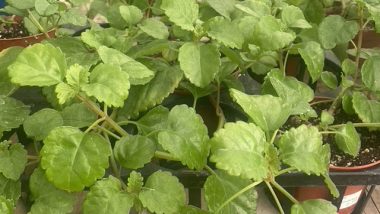Peperomia plant care indoors. Looking for an indoor houseplant that’s easy to care for and looks amazing? Peperomia plants might be perfect for you they are in the Pilea Peperomiodes family. Lots of folks love this plant and for a reason—they bring big charm with little effort. Whether you’re just starting your indoor garden or adding to a collection, Peperomias are a fantastic choice. Let’s get into how to care for them properly.
Understanding Peperomia Plants
Peperomia plants are part of the Piperaceae family and originally come from tropical regions in South and Central America. With over 1,000 varieties, they are prized for their diverse and beautiful foliage. Some people even call them “radiator plants” because they thrive in warm, cozy spaces.
Peperomia Varieties
Here are some popular Peperomias you might want to add to your indoor garden: They are typically available at most home and garden Nursery stores.
- Watermelon Peperomia: Its leaves look like watermelon skin, with green and silver stripes.
- Ripple Peperomia: Known for its textured, rippled leaves that come in shades of green, red, or even silver.
- Baby Rubber Plant: This one has thick, glossy green leaves resembling those of a rubber plant.
- Raindrop Peperomia: Has stunning, raindrop-shaped leaves that are both unique and eye-catching.
- Chinese Money Plant Peperomia: Dark green foliage with leaves that resemble coins.
Pictures of Common Peperomia Plants
These varieties give you an array of sizes, colors, and textures to fit any corner of your home.
Benefits of Growing Peperomia Indoors
People who like Peperomia plants rave about them? For starters, they’re super low-maintenance and perfect for beginners. They don’t need constant attention and even forgive the occasional watering mistake. Another benefit is their air-purifying ability, which can help freshen up your indoor environment. And let’s not forget—they’re just gorgeous and can instantly boost your decor.
How to Care for Peperomia Plants Indoors
Want to keep your Peperomia thriving? Here are the care tips you need to follow.
Light Requirements
Peperomias love bright, indirect light. Think of a spot near a window with filtered light streaming through. Direct sunlight can scorch their delicate leaves, so avoid putting them in spots with harsh rays. If your home doesn’t get a lot of light, no worries—these plants can adjust to lower light conditions too.
Watering Guidelines
Peperomia doesn’t like being overwatered. In fact, too much water is one of the main reasons they struggle. Water them every week or two, depending on the season and light levels. Before you water, check the top inch of soil—it should feel dry. If it’s still damp, wait a few more days. Too much water can lead to root rot, which no plant parent wants.
Humidity and Temperature
These tropical plants love moderate humidity and indoor temperatures between 65°F and 75°F. If the air in your home is very dry, consider misting the leaves occasionally or placing a small humidifier nearby. They’re also sensitive to cold drafts, so keep them away from windows during chilly months.
Best Soil Types for Peperomia
Good drainage is key. Use a potting mix designed for houseplants and add some perlite or pumice to improve aeration. A lightweight, well-draining soil helps avoid waterlogging their roots.
Common Issues and Troubleshooting
Even the best plant parents encounter a hiccup now and then. Here’s how to handle common problems with Peperomia plants.
Pest Control
While generally resistant to pests, Peperomias can still attract mites or mealybugs. If you notice tiny bugs on the leaves, wipe them off with a damp cloth and use a gentle insecticidal soap to keep them away.
Dealing with Leaf Problems
Are the leaves yellowing, drooping, or falling off? This often points to overwatering or not enough light. Adjust your care routine and watch for improvements.
Signs of Overwatering or Underwatering
With overwatering, leaves may feel mushy or grow fungus near the stems due to root rot. On the flip side, underwatering causes the plant to wilt with dry, brittle leaves. A quick tweak to your watering habits can bring it back to health.
Decorating with Peperomia Plants Indoors
Now that your Peperomia is thriving, let’s talk about how to show it off in your home.
Placement Ideas in Different Rooms
Peperomias look great in almost any room. Try placing a smaller variety on a kitchen windowsill or a trailing variety, like the String of Turtles, on a bathroom shelf. Larger varieties can act as living decor in your living room or bedroom, adding a natural, peaceful vibe.
Combining with Other Indoor Plants
These plants pair beautifully with others. Try combining Peperomias with contrasting plants like taller fiddle leaf figs or spiky snake plants for variety in shape and height. Mix and match pots for an added decorative touch.
According to the ASPCA, Peperomia Plants are not Toxic to Cats and Dogs
Conclusion
Caring for Peperomia plants is easy and. resilient—they’re a joy to have around. They deliver style, clean air, and low-maintenance care all in one package. If you’re someone who enjoys surrounding yourself with lush greenery, Peperomias deserves a spot in your indoor collection. Care for them properly with these tips, and they’ll reward you with plenty of happy, healthy vibes. Ready to nurture one in your space? Trust me, you won’t regret it!
For more plant care ideas, check out Indoor House Plant Names.

Greenhouse Manager, Master Gardener, and Webmaster.
If you have any questions or enjoyed this post, feel free to share your thoughts in the comments below.







